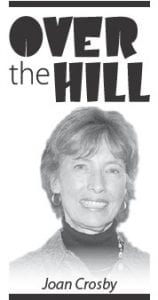She is dark-haired and thin, 15 years old when she crosses the border at El Paso and enters the United States from Mexico. Her journey’s been long and arduous.
At age 14, she started work as a maid for a wealthy family and eventually became the chief cook. Along with her two older brothers and sister, all the money she earned was given to her father. Now she crosses the border to begin a new life, hopefully, a better one.
The year is 1928, and the girl is my mother. Her story begins thousands of miles away in a small German Mennonite enclave in Siberia where she was born. Her father was an active church Elder, deeply religious and not one to keep his mouth shut.
As Joseph Stalin gathered power in 1920 Soviet Union, her father was warned that his life was in peril if he kept preaching. He would eventually lose three sons to Stalin’s Gulag; two returned, the other was never seen again.
With the handwriting obviously on the wall, sometime in 1924, my grandfather, with his wife and five younger children, including my mother, joined a group of Mennonites immigrating to the United States where religious differences were tolerated.
Unfortunately, upon reaching Rotterdam, they discovered that a family member’s eye infection disqualified them from entering either the United States or Canada. However, Mexican immigration allowed them entrance, and they settled in the state of Durango and waited till they could move north.
Three long years passed before my mother and her family were allowed to immigrate to the United States. My dark-haired, slim mother, along with her family, took a train and, finally having met the required qualifications, crossed from Mexico to the United States where they settled.
Emigrating had not been easy. It had not been fast. Upon reaching this country, they were required to hold Alien Registration cards. (I have my mother’s original.) And the receipt I found amongst old family documents shows the adults were required to pay an $8 Alien Head Tax Fee to the U.S. government. That translates into $128 in modern currency.
No programs existed to feed or lodge them. Once again my mother found work as a maid as did her oldest sister. All the siblings worked to help their father who, by now had suffered a stroke.
My mother’s family followed the rule of law, and although the journey hadn’t been easy, my mother was always proud to be an American citizen.
She learned English, got her citizenship and, among other things, married my dad and raised a family. When, as a college student of the ’60s, I railed against the system, she simply said, “Joanie, you don’t know how lucky you are to live in a free country.”
Years later I do know and am eternally grateful to be born in the United States of America thanks to a strong-minded grandfather and my spunky mother.



Leave a Reply